
Long-read
We are coming apart
How asylum, multiculturalism and contempt for the masses turned Britain into a tinder box.
Want unlimited, ad-free access? Become a spiked supporter.
It’s been almost a year since the Southport massacre. That sunny morning, etched forever in infamy, when Axel Rudakubana committed his barbaric, depraved murders of three young girls at a dance class in the Merseyside seaside town. It sparked the worst anti-migrant riots Britain has seen in modern times, fuelled by false claims Rudakubana was a Muslim, small-boats asylum seeker. But to anyone who had been paying attention, the seeds of that horrific unrest were sown long before that.
Before Southport, Middlesbrough, Rotherham and many more towns and cities descended into nihilistic violence last summer, with peaceful protests being overrun by racists and opportunists trying to burn down migrant hotels and pelting mosques with bottles and bricks, there were plenty of signs that something was about to snap.
In Knowsley, also in Merseyside, in February 2023, a protest outside a hotel housing asylum seekers was leapt on by troublemakers and turned into a riot. The protest was called after a young girl was allegedly propositioned by a migrant on the street. This detail was naturally omitted in much of the mainstream media’s coverage, even though local media had covered it and the police were investigating. The true blame, the broadcasters piously intoned, lay with ‘misinformation’.
This pattern keeps repeating itself. A violent or sexual crime allegedly committed by a migrant causes tensions to flare, while the media and politicians play dumb. We saw it again in Ballymena last month, where the attempted oral rape of a girl by two Romanian Roma boys was followed by days of rioting, first targeting the homes of the alleged rapists before spilling over into undiscerning racist rage – visited upon innocent migrants, too. Heartbreakingly, members of the area’s thriving Filipino community took to putting signs on their doors, bearing Union flags and the words ‘Filipino lives here’, in the hopes they would be spared from the carnage.
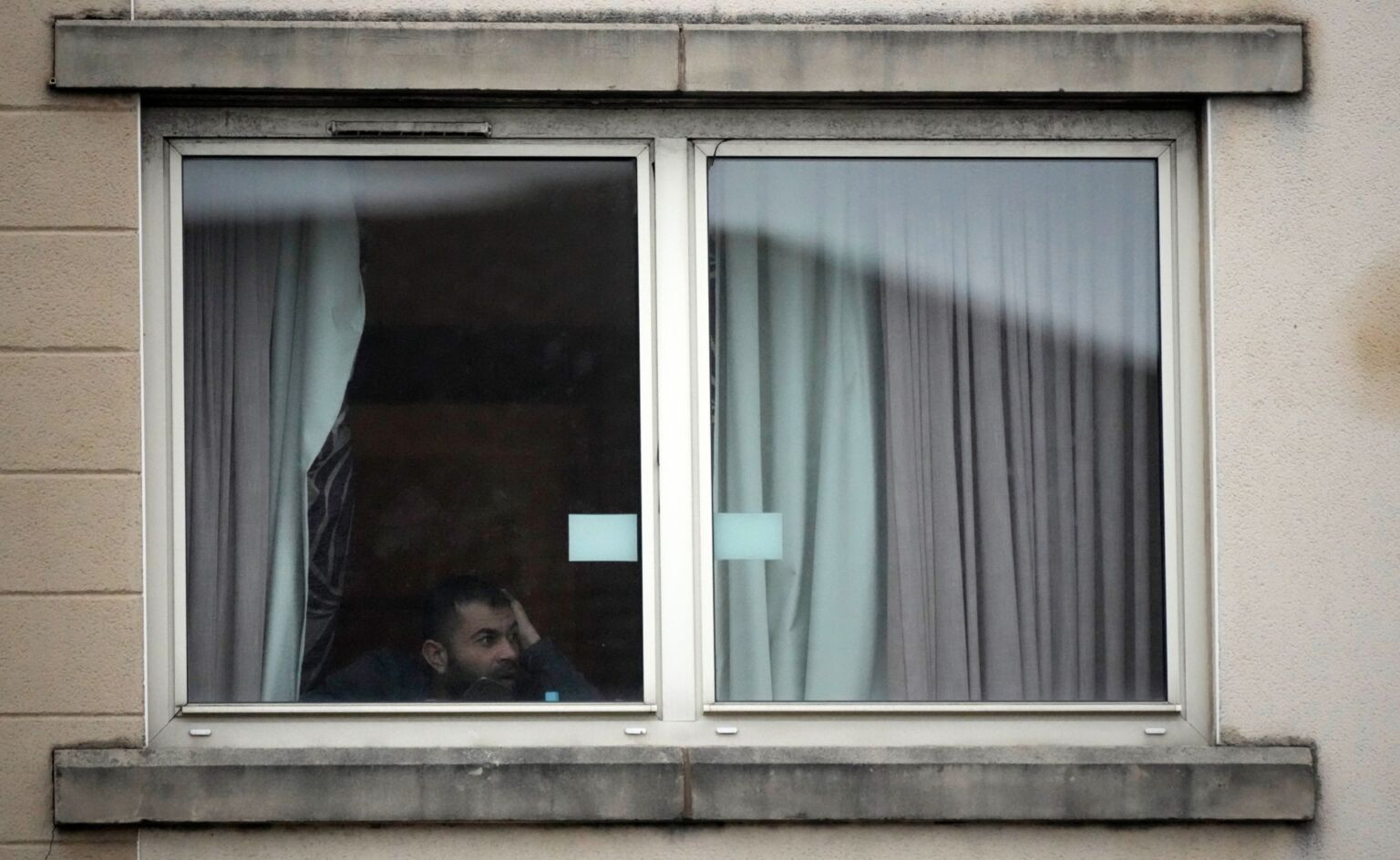
The leafy Essex market town of Epping is the latest place to go off. On Thursday night, a protest was held outside the Bell Hotel, where migrants have been housed since 2020. Last week, an Ethiopian resident of the Bell was charged with three counts of sexual assault, one count of inciting a girl to engage in sexual activity and one count of harassment without violence. He’d arrived in the country, by a small boat, just eight days prior.
What began as peaceful on Thursday night, notes the Evening Standard, was later ‘hijacked’. After a few masked-up counter-protesters showed up and riot police attempted to separate them from the hotel demonstrators, the now familiar melee ensued, with young men clashing with police, clambering on top of and kicking the wing mirrors off police vans. As police attempted to flee, a protester was run over.
Things had already turned ugly in Epping last Sunday. Following another protest outside the hotel, two of the Bell’s security staff were assaulted, in what is being treated as a ‘racially aggravated’ attack by police. Earlier this week, graffiti appeared on the hotel’s windows, saying ‘Go home’, ‘This is England’ and ‘Die’. Migrants residing in the hotel have also alleged that they have been punched and screamed at in the street.
So what has brought this fear, loathing and violence to another British town? Naturally, the mainstream media have suggested it is all part of some fascist insurgency. A hasty BBC report about Thursday night’s protest (since corrected) claimed there were ‘400 members of far-right groups’ present. Apparently, we were expected to believe all those who attended were card-carrying Nazis, and that the Beeb had found time to verify their memberships.
It would hardly be a surprise if a few of the dregs of Britain’s pathetic, marginal far right decided to exploit the protests in Epping for their own racist and violent ends. But the tendency to present these disturbances as organised by fascist groups, masterminding events, is simply not borne out by the available evidence. It serves two purposes, neither of them good.
The first, of course, is to demonise the genuinely felt concerns about asylum, migration and safety that are bringing people out peacefully on to the streets – concerns that are shared by many across the nation who would never dream of rioting, rucking with police or menacing innocent migrants or hotel staff.
The great and good refuse to accept that allowing unvetted men to enter the country illegally, before putting them up on a bustling high street, might pose even a mild risk. Weyman Bennett – veteran placard-waving irritant at Socialists Workers Party front group Stand Up To Racism, which participated in Thursday’s counter-demonstration – told the BBC that ‘Britain is a peaceful country in which people should be allowed to go about their business without being attacked’. With grim irony, this quote appears below two paragraphs noting the sex attacks allegedly committed by the Ethiopian asylum seeker. (Somehow I doubt that is what Weyman was referring to.)
The second reason they reach for the f-word is to render the violence erupting at these protests as something more explicable, digestible – as attacks that were orchestrated by Machiavellian far-rightists, or at least ginned up by their social-media BS factories. In truth, what we appear to be seeing is in some ways more chilling. An organic flare-up of ethnic conflict, albeit it among an infinitesimally small portion of society, whose violence unites Brits in opposition against them.
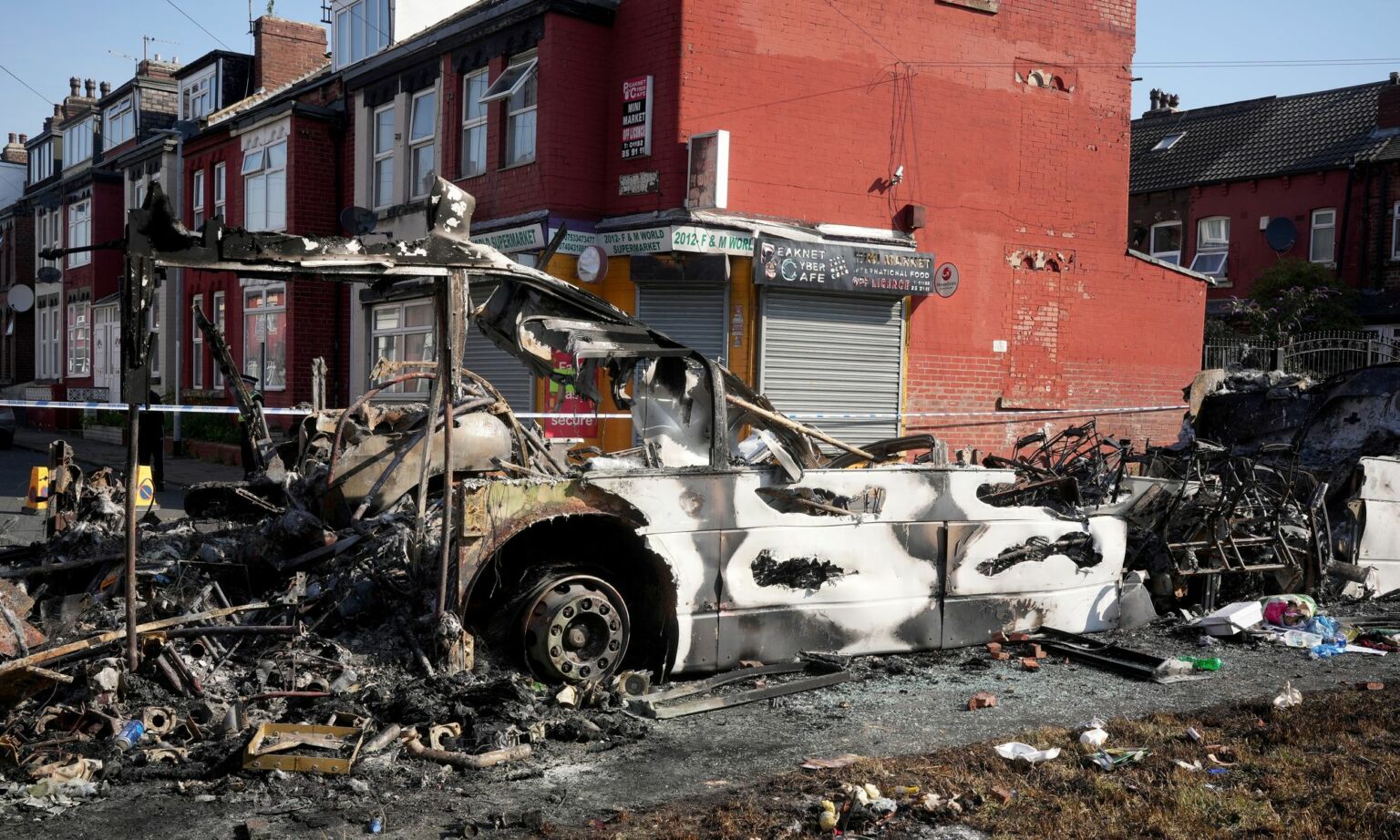
That was certainly the case after Southport. When scumbags began trying to torch migrant hotels while blocking the emergency exits, or set up whites-only checkpoints on roads, prime minister Keir Starmer was quick to pin this on ‘far right’ agitators, bussed in from far and wide, rioting in ‘a community which is not their own’. But this narrative has since unravelled. As a report by His Majesty’s Inspectorate of Constabulary and Fire and Rescue Services concluded in May: ‘Most offenders lived locally to the scenes of disorder. We found that it was mostly disaffected individuals, influencers or groups that incited people to act violently and take part in disorder, rather than criminal factions or extremists. And it was mainly unrelated to their ideology or political views.’
The perma-online right had its own denialism about the riots. Many struggled even to acknowledge, let alone full-throatedly condemn, the despicable racism on our streets, even as masked youths with metal bars were smashing windows in migrant areas, screaming ‘smash the pakis’ – as if doing so would be a sop to the wokesters. But more consequential is the denialism of the governing class: its refusal to examine the policies that have taken a wrecking ball to social cohesion and public trust; its contempt for the peaceful majority’s reasonable concerns, which has allowed something much darker to curdle among a small but violent fringe.
Where to start? There is our toxic combination of mass migration, uncontrolled illegal migration and negligible integration. There is the decades-long project of national self-loathing we’ve been engaged in, infuriating patriotic Brits who see every culture celebrated but their own, while depriving society at large of a story that might bind us all together. There is our multicultural state, which institutionalises difference – treating us not as citizens but as ethno-religious blocs, to be policed and even sentenced to differing degrees, supposedly for the good of ‘race relations’. There are our identitarian elites, who insist we see ourselves in racial terms, but then are horrified to discover that some white Brits are beginning to see themselves in precisely those terms. There is the dead hand of political correctness, which led politicians and the police to turn a blind eye to the rape of young, poor girls by disproportionately Pakistan Muslim men, for fear of being called names. We could go on. And on.
We are coming apart, everywhere. We see this not just in the riotous aftermath of Southport, or protests outside of migrant hotels. But also in the Hindu-Muslim street battles fought in Leicester in 2022, triggered by an India-Pakistan cricket match. We saw it in the Harehills riot, just 11 days before the Southport massacre, where this incredibly diverse, very deprived, largely foreign-born Leeds community went up in flames after social services tried to take some Roma children into care. And we saw it in the tooled-up, balaclava-clad Muslim youths who took to the streets of Bordesley Green in Birmingham amid the Southport riots, threatening television crews and savagely beating up an innocent man outside a pub.
Asylum, in particular, is becoming the defining issue of our globalised, hyper-mobile, increasingly war-torn times. And yet the way our careless establishment has handled it seems almost designed to generate social conflict. The most impoverished communities in the UK have been forced to shoulder the burden of the small-boats crisis, purely because the hotel rooms there are cheaper, all while concerns about crime, safety and integration are ignored. You don’t need to be a fire-breathing bigot to recognise that some of the young men willing to enter a nation illegally, and unvetted, languishing for years on handouts and black-market employment, might commit other crimes. Nor do you need a PhD in social cohesion to recognise that the arrival of people from more misogynistic, violent cultures, into a nation uninterested in integrating them, will breed fear, tension and very real risks for citizens.
The Afghan data-breach scandal, finally revealed this week after years of official secrecy, is the starkest sign yet of the mix of contempt, neglect and plain old incompetence with which officialdom treats the asylum issue. As many as 100,000 Afghans were put at grave risk when a spreadsheet of those applying for asylum was leaked, floating around the internet unnoticed for 18 months, potentially falling into Taliban hands. Then, when the Ministry of Defence realised its potentially fatal error, it launched a hasty evacuation plan for those affected – spiriting thousands of Afghans to the UK, landing at RAF bases in the middle of the night before being taken to Britain’s poverty-stricken towns and cities. It then took out a superinjunction to keep the media, members of parliament and voters in the dark.
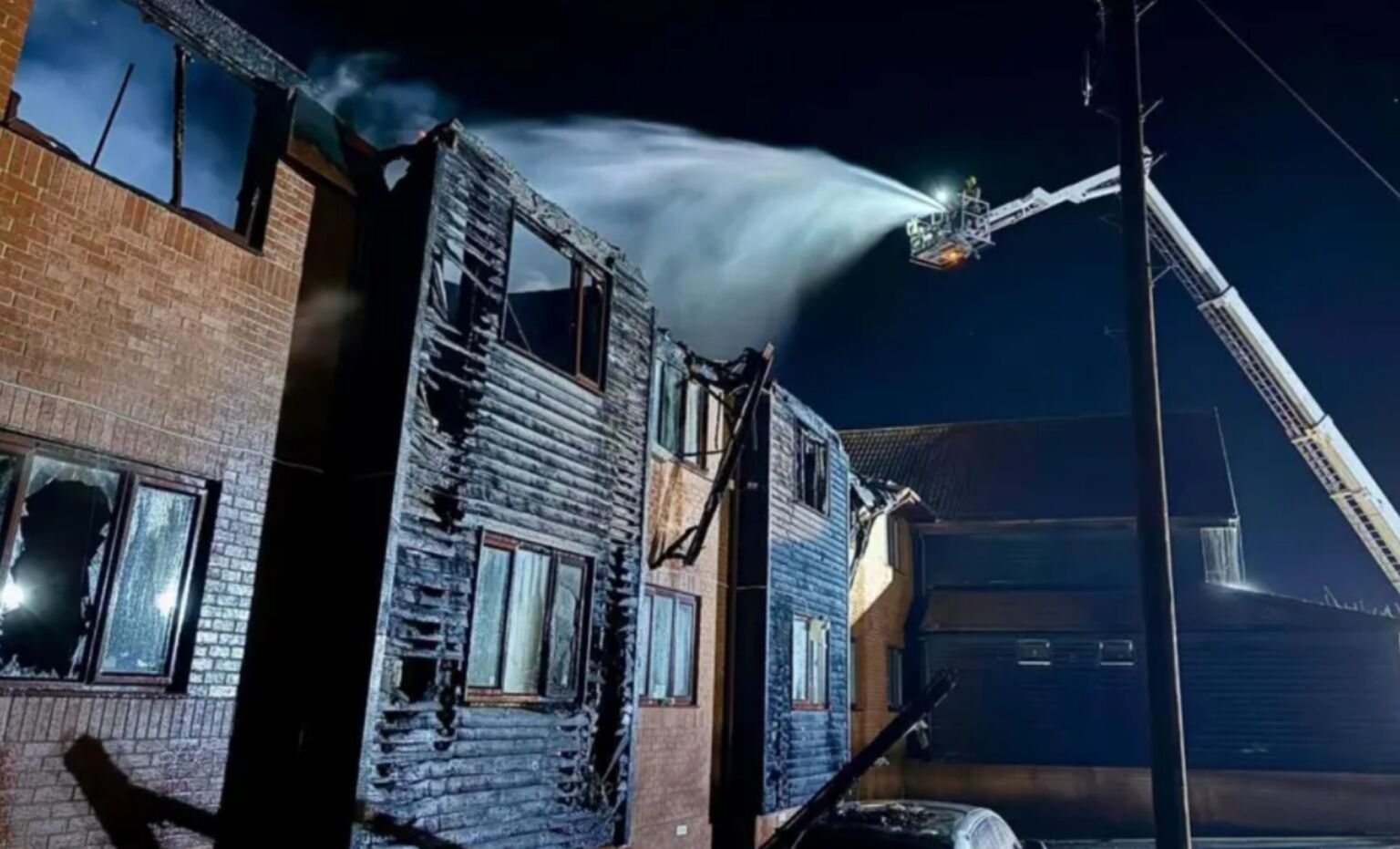
This superinjunction, unprecedented in British political history, was justified on the grounds of keeping those exposed Afghans safe, given they had cooperated with the West’s foolhardy, 20-year occupation. Even if that were true at first, it is clear this wasn’t the only reason why the Tory and then Labour governments maintained this democratic outrage for two years. Cabinet ministers were given a private briefing last October, noting that ‘15 out of the 20 primary disorder hotspots’ during last summer’s riots ‘are in the top 20 per cent of local authorities with the highest numbers of supported asylum seekers and Afghan resettlement arrivals’. Earlier this month, a Whitehall briefing note stressed that the government would need to ‘mitigate any risk of public disorder following the discharge of the injunction’.
It’s a textbook example of how the modern British state inflames tensions in the name of easing them. Rather than make the case – publicly – for this asylum scheme, allowing voters and their representatives to scrutinise, to air their concerns or opposition, or to know about it at all, ministers ploughed ahead in silence. No doubt because the kind of checks and security measures necessary to pull off something like this, while commanding any measure of public support, would have been impossible in the context of the state evacuating thousands of people in a blind panic. And thus, already tense, deprived communities found more newcomers suddenly arriving in their midst. That it may well have laid some of the tinder for last summer’s unrest seems not to have moved the government. The need for better management of information, better ‘mitigation’ of the risks, is the only conclusion they seem to have drawn.
No one is served well by this. Indeed, the asylum system has become so deranged and dysfunctional – incapable of rooting out even provably dangerous criminals – that it is putting migrants and citizens alike at risk. Remember Abdul Ezedi, the Afghan who was granted asylum on his third attempt – despite committing a string of sexual offences after he arrived – only for him to acid-attack a refugee woman and her children? Or Ahmed Alid, the Moroccan asylum seeker who was so inspired by Hamas’s pogrom on 7 October he stabbed his Iranian housemate, also an asylum seeker, before murdering an elderly British man in the street? Another migrant hotel in Epping, the Phoenix in North Weald Bassett, was almost burned to the ground in March. Eight days later, the fire service was also called to a mercifully much smaller fire at the Bell, where those protests continue to rage. Police have arrested a man on suspicion of starting both fires. Rawand Abdulrih appears to have been a resident of the Bell.
The only thing that seems capable of halting the protests in Epping is the weather. Downpours on Saturday brought them to a standstill, only for a much bigger demonstration to take place on Sunday, after the Sun came out. Just as the government seems to be at the mercy of the elements when it comes to the steady procession of dinghies making their way across the channel, with ebbs and flows in arrivals dictated more by the seasons than government action, so it is with the unrest on our streets, which politicians cannot understand, let alone seek to quell. How could they? It is precisely our rulers’ fecklessness, their failed orthodoxies, their contempt for the concerns of the public, that have brought us to this dark and dangerous place.
Tom Slater is editor of spiked. Follow him on X: @Tom_Slater
£1 a month for 3 months
You’ve hit your monthly free article limit.
Support spiked and get unlimited access.
Support spiked – £1 a month for 3 months
spiked is funded by readers like you. Only 0.1% of regular readers currently support us. If just 1% did, we could grow our team and step up the fight for free speech and democracy.
Become a spiked supporter and enjoy unlimited, ad-free access, bonus content and exclusive events – while helping to keep independent journalism alive.
———————————————————————————————————————————–
Exclusive January offer: join today for £1 a month for 3 months. Then £5 a month, cancel anytime.
———————————————————————————————————————————–
Monthly support makes the biggest difference. Thank you.





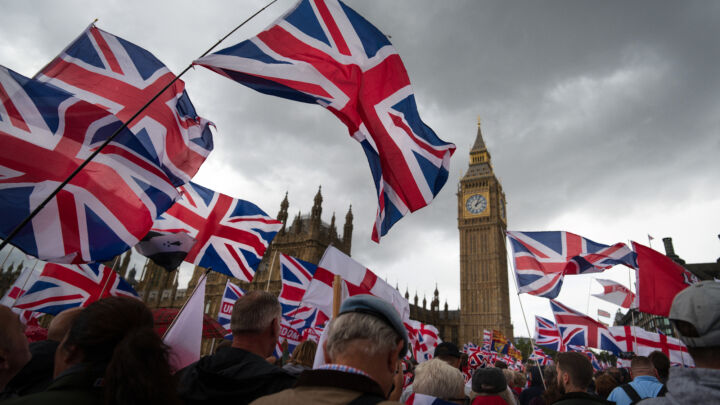
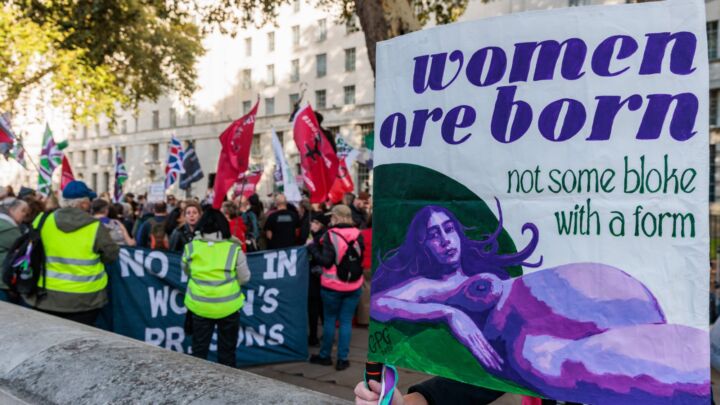

Comments
Want to join the conversation?
Only spiked supporters and patrons, who donate regularly to us, can comment on our articles.